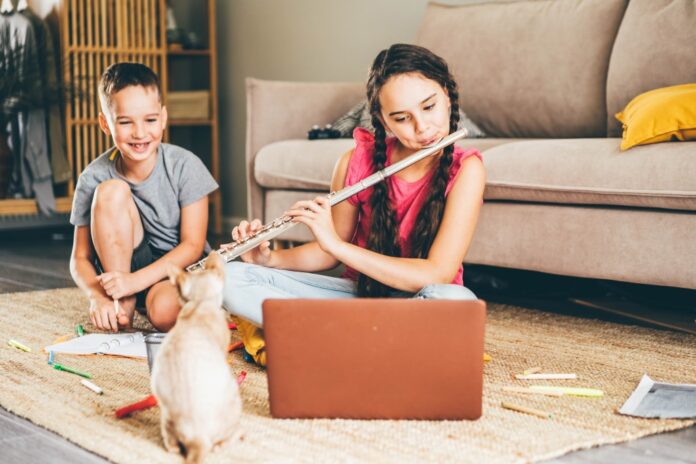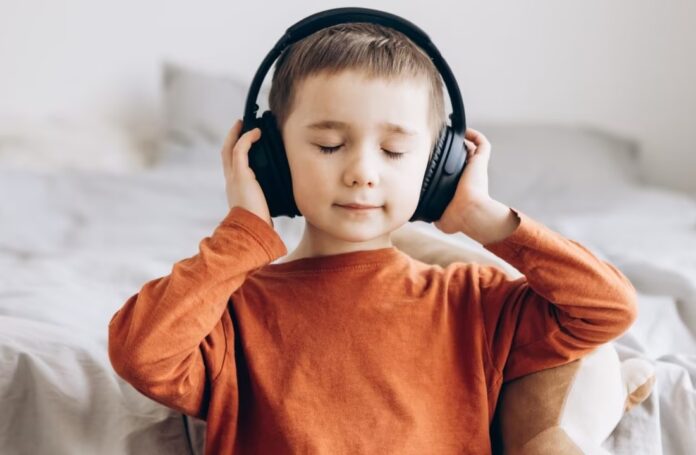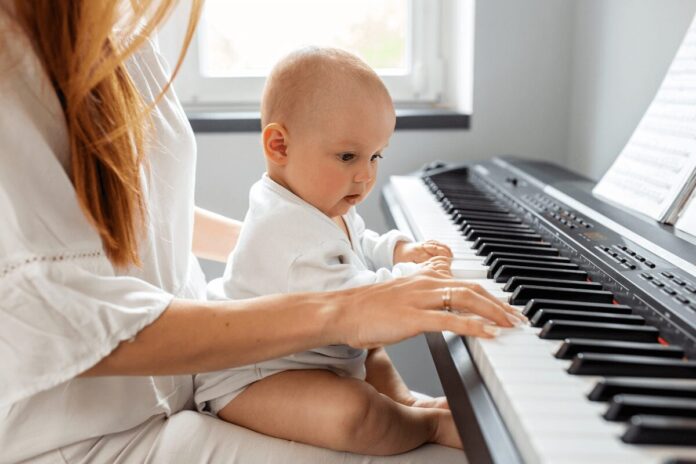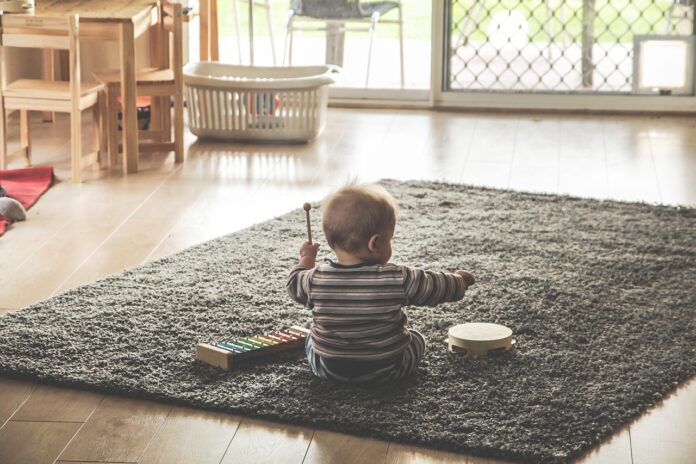Music plays a powerful role in children’s early development. It helps shape memory, language skills, creativity, and emotional intelligence. Introducing music at a young age fosters learning through fun, movement, and imagination. From lullabies that soothe infants to playful songs that encourage toddlers to move and clap, music can be woven into every stage of early growth. It not only entertains, but also builds a foundation for many essential life skills.
Let’s explore how music supports growth in every aspect of a child’s development, and how practical activities, including structured lessons, can enhance these benefits. The following sections will break down the main advantages of incorporating music into everyday routines and early education.
Cognitive Benefits of Musical Engagement

Music boosts concentration, memory, and brain flexibility. Repetitive songs help children recognize sound patterns, follow sequences, and retain information. These cognitive skills are later transferable to language and math learning, making musical engagement an indirect yet powerful academic tool.
When children learn to anticipate the next note in a melody or remember the words to a song, they are exercising the same mental processes that will help them solve equations or understand grammatical structures later on. Musical rhythms also support pattern recognition, a skill directly linked to logical reasoning.
Introducing musical instruments enhances focus and coordination. For instance, learning to play an instrument, such as flute lessons you can take, strengthens fine motor skills and stimulates multiple areas of the brain at once. This process engages both hemispheres, supporting a balance between analytical thinking and creativity. Children engaged in music often demonstrate improved academic performance, especially in literacy and numeracy, because they are consistently practicing attention control and memory recall.
Even simple activities, like matching sounds to images or clapping along to a beat, provide a workout for the brain. Over time, these small exercises help develop problem-solving skills, adaptability, and an increased capacity for sustained mental effort.
Language Development and Communication
Singing and listening to music support early language acquisition. Children absorb rhythm, melody, and word patterns without the pressure of formal learning. This natural exposure makes it easier for them to process new words and structures. For example, nursery rhymes typically use repetition and rhyming patterns, which reinforce vocabulary retention.
Songs introduce new vocabulary in a playful way and help with pronunciation and sentence structure, especially when repeated regularly in familiar settings. A simple “good morning” song at the start of each preschool day can reinforce greetings and social norms while also expanding language skills.
Musical play sharpens auditory processing, which is crucial for speech clarity and reading readiness. By learning to differentiate between high and low notes or fast and slow tempos, children train their ears to pick up on subtle differences in sounds — a skill that directly supports phonemic awareness. It also builds verbal confidence, as children feel more comfortable expressing themselves through familiar melodies and lyrics. This comfort extends to speaking in groups, engaging in storytelling, and participating in conversations, enhancing both listening and speaking skills.
Emotional Expression and Social Connection

Music allows young children to explore emotions in a way that feels safe and non-threatening. A slow, gentle lullaby can evoke calm and security, while an upbeat dance song can inspire joy and energy. Through these experiences, children begin to associate certain sounds with feelings, which helps them recognize and understand their own emotions.
Different tempos and tones help them identify happiness, sadness, excitement, or even tension. This emotional awareness is essential for developing empathy, the ability to understand and respond to the feelings of others.
Music also nurtures social development. Group activities like singing circles, drumming sessions, or simple call-and-response games foster cooperation, patience, and empathy. Children learn to take turns, listen to each other, and coordinate their actions to achieve a shared musical goal. These are essential life skills that carry into the classroom and beyond, supporting inclusive and respectful behavior.
In many cases, shared musical experiences create lasting bonds. A group of children performing a song together builds a sense of community, encouraging them to celebrate each other’s contributions.
Physical Coordination and Motor Development
Dancing, clapping, and playing instruments enhance both gross and fine motor skills. A lively song with guided movements, like jumping, spinning, or marching, supports muscle strength, balance, and spatial awareness. Over time, these repeated activities improve a child’s agility and core stability.
Simple actions like tapping a drum, shaking a maraca, or jingling bells support rhythm and hand-eye coordination. These activities might seem playful, but they are actually structured exercises for the body and brain.
Instruments such as flutes, keyboards, and xylophones require precise finger movements, helping develop muscle control and dexterity. This fine motor development not only benefits musical performance but also prepares children for tasks like writing, drawing, and using tools. Furthermore, bilateral coordination, the ability to use both sides of the body simultaneously, is strengthened through activities like playing piano or drumming, where each hand must perform different actions.
Music as a Learning Support

Music naturally introduces mathematical concepts. Beats, timing, and sequences help children understand counting, order, and rhythm. For example, clapping along to a four-beat measure reinforces the concept of grouping numbers, a skill that lays groundwork for addition and multiplication.
Structured musical games, such as “follow the conductor,” support problem-solving and early logic through fun and repetition. These games often require children to listen carefully, interpret cues, and respond quickly, abilities that are transferable to other areas of learning.
Music also fuels creativity. Improvisation, sound exploration, and song composition invite children to express themselves freely and think outside the box. A child inventing their own song is experimenting with melody, language, and structure, all while engaging in imaginative play. These moments of creative freedom build self-esteem, flexible thinking, and curiosity, qualities that can inspire innovation throughout life.
Bringing Music Into Everyday Life
Music can be woven into daily routines with ease. Singing during transitions, like tidying up or getting ready for bed, can turn otherwise mundane moments into enjoyable rituals. Adding background music to quiet time helps create a calm environment, while upbeat tunes can motivate active play.
Parents and educators can incorporate music into storytelling, using sound effects or background melodies to enhance engagement. Rhythm games played on the go, such as clapping patterns or tapping beats on the table, can make car rides or waiting time productive for learning.
For more structured growth, formal instruction, like flute lessons or early music classes, provides children with a sense of discipline, progress, and long-term skill development. Structured lessons introduce goal setting, practice habits, and perseverance, all of which translate into success in other academic or artistic pursuits. Children also learn to accept feedback and refine their skills over time, which helps them approach challenges with resilience.
From enhancing brain development to encouraging creativity, music’s influence on early childhood is profound. Whether through casual singing at home, active participation in group activities, or more structured learning experiences, music can be a lifelong companion in growth. By making music a consistent part of a child’s world, parents and educators give them a powerful tool to develop essential skills, nurture emotional health, and build meaningful connections.




